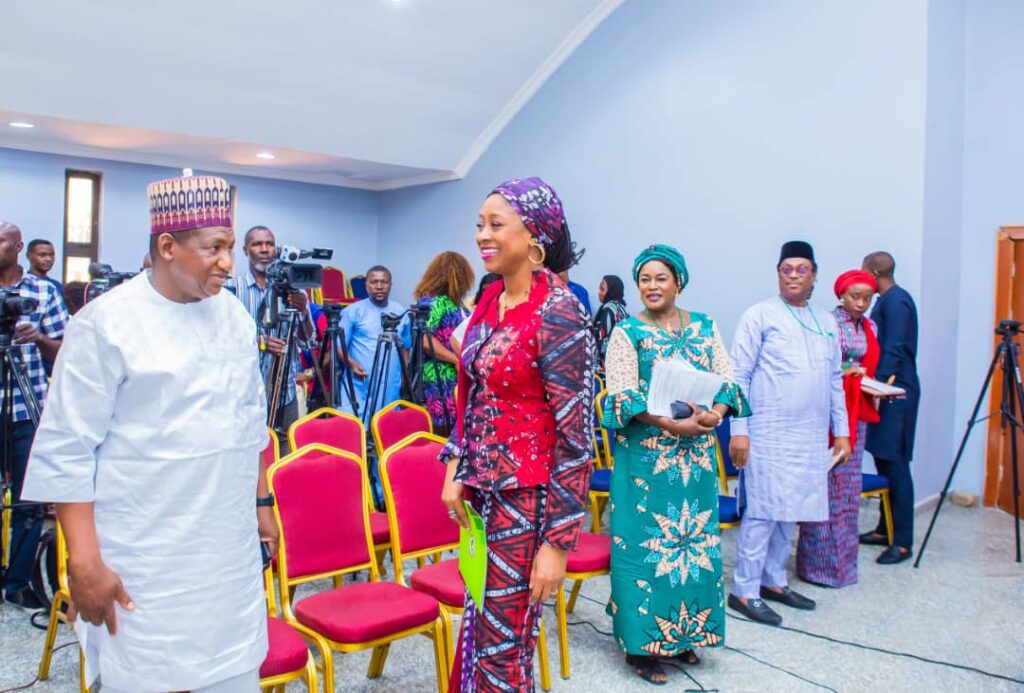…Collaborating with international organisations to promote Nigeria’s potential
From Atiku Sarki, Abuja
The Nigerian Investment Promotion Commission (NIPC) has confirmed that its Pioneer Status Incentive (PSI) programme has successfully attracted investments from 37 companies across various sectors, totaling N386 billion.
Lovina Kayode, Head of the Incentives Administration Unit at the NIPC, made the announcement during a quarterly media parley organized by the Commission in Abuja over the weekend. She also highlighted that the programme has generated 5,559 new jobs.
Kayode explained that the PSI grants qualifying companies a tax holiday of three to five years, exempting them from paying corporate income tax during those periods.
She emphasized the significant impact of the incentive, noting that it has not only created substantial job opportunities but has also contributed to reducing poverty in the country.
The NIPC’s approach also includes embracing a technology transfer model to facilitate easier access to investment opportunities. Additionally, the Commission has compiled a comprehensive guide to incentives in Nigeria, covering six key sectors: investment policies and protections, general tax-based incentives, sector-specific incentives, tariff-based incentives, export incentives, and special economic zones.
Kayode expressed confidence that these initiatives are improving the institutional framework and enhancing the capacity of Investment Promotion Agencies (IPAs), ultimately attracting both Domestic Direct Investment (DDI) and Foreign Direct Investment (FDI).
She noted that this would contribute to economic growth, MSME development, and increased income and employment opportunities across Nigeria.
Earlier, NIPC Executive Secretary and CEO, Ms. Aisha Rimi, reiterated the Commission’s commitment to driving economic growth through expanded investment opportunities and a business-friendly environment. She emphasized that these efforts are in line with President Bola Tinubu’s Eight-Point Agenda, which aims to bring development and progress across all sectors.
“Our efforts to retain investments include a robust investor relations strategy, closer collaboration with sub-national governments, and capacity-building programmes aimed at empowering local entrepreneurs,” Rimi stated.
Rimi also highlighted the NIPC’s collaboration with international organizations such as the United Nations Development Programme (UNDP), the Japan International Cooperation Agency (JICA), and the German Agency for International Cooperation (GIZ).
These partnerships, she said, have provided technical and financial support in promoting Nigeria’s investment potential on international platforms.
“These collaborations have been instrumental in accessing global expertise and showcasing Nigeria’s investment opportunities on the global stage,” Rimi added.
Furthermore, the NIPC is prioritizing sustainability and innovation by encouraging green investments and emerging sectors like fintech and renewable energy. Rimi emphasized that these efforts aim to attract socially-conscious investors and advance the green agenda towards sustainable investment opportunities for Nigeria.
The NIPC has also participated in major global events, including the World Economic Forum in Davos, where it showcased Nigeria as a top-tier investment destination. Rimi called on the media to continue supporting the Commission by raising awareness and sharing success stories to attract even more investors.
In conclusion, Rimi reaffirmed the Commission’s commitment to improving Nigeria’s investment landscape, in alignment with President Tinubu’s economic transformation goals, focusing on a diversified economy, infrastructure development, and human capital growth.
“All these objectives will be achieved through a diversified economy, enhanced infrastructure, and human capital development,” she concluded.


